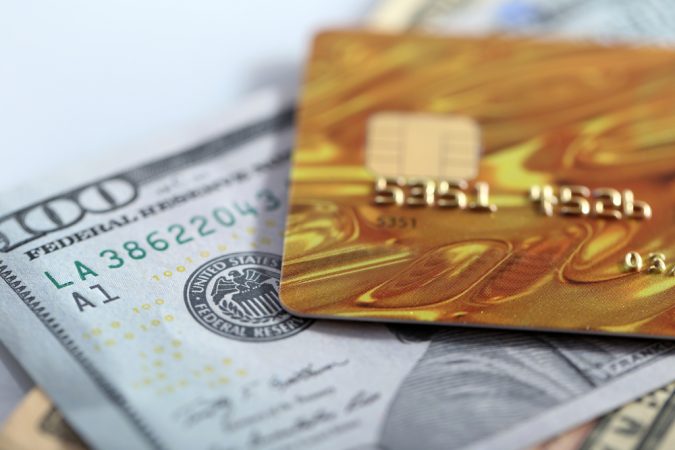Credit Union Vs. Bank Perks: Whose is Better?

It’s never been true that all financial institutions are the same.
But before you commit to a particular bank for direct deposit of your paycheck and your daily financial needs, check around to see if you might be better off at a credit union.
Credit unions are non-profit cooperatives that serve groups of members that have something in common such as an employer, membership in an association or residents of a particular community.
Just like Online Banks, they are often able to offer higher interest rates on savings accounts, money markets and CDs, and lower rates on credit cards and loans.
There will also be very little or no fees compared to a traditional bank.
In most cases it is easy to qualify to become a member if you live in a particular region or work, go to school or even worship there.
To find a credit union you might qualify for visit mycreditunion.gov or asmarterchoice.org. Traditional banks are not very happy that it is so easy to join a credit union.
Memberships in credit unions continue to increase.
"Broader eligibility requirements and greater awareness are reasons for the growth in credit unions," said CUNA Chief Executive Bill Hampel. "For instance, many have made it easier for more people to join over the past several decades by expanding eligibility based on where customers live, instead of restricting membership to a particular employer.”
How Credit Unions are Different
Like traditional banks, credit unions make their money by giving out loans.
But they do not have all the expenses associated with large banks in that they are exempt from federal taxes and do not have to pay dividends to shareholders as a public company.
However, the interest you earn on a credit union savings account is called a dividend.
With a credit union, you aren’t going to be charged every time you use their ATM or your balance goes below a certain amount.
Most banks charge a monthly service fee.
For example, Bank of America charges $12 if you don't have a direct deposit of $250 or more each month.
With no monthly service charge at credit unions, this alone can save you over a hundred dollars each year.
Also, most credit unions offer immediate access to your deposits so you don’t have to wait a day or two to start spending your own money.
Checking accounts can be automatically linked to a savings account without a fee, so if your checking account goes negative the funds are taken from your savings.
And if you have to use an ATM outside their network, many will reimburse you for the fees up to $5 per month. Also, with direct deposit of your paycheck you can often have access to your money up to two days early.
Since credit unions are non-profits, you might find lower interest rates for new and used car loans in particular.
In general, borrowing standards might be a little more flexible if you are a member in good standing.
And just like most major banks, all credit union accounts are federally insured up to $250,000 and backed by the U.S. government.
Banking from Anywhere
The Digital Credit Union, known as DCU, is just one example of the rapid growth of credit unions.
The organization was founded in 1979 in Marlborough, Massachusetts, to serve employees of Digital Equipment Corporation.
Today it provides banking services for more than 900 companies and organizations with more than 500,000 members in all 50 states.
They report that half of their members have never entered a brick and mortar DCU location, as they have access to thousands of CO-OP shared branches with other credit unions nationwide.
Peter Bell became a DCU member when he lived in the Boston area, and later moved to Rochester, New York.
He decided to keep his checking and savings accounts there since he couldn’t find a bank that came even close to the benefits the DCU offered.
“With direct deposit of my paycheck and free access to local ATMs for both withdrawals and deposits, there was really no reason to make a change," Bell said. "I have overdraft protection that is directly tied to a home equity line of credit, so instead of getting charged 18% interest I pay about 3-4% whenever I have to use it. Any type of loan can be taken out from the comfort of your own home, and once when I refinanced my mortgage DCU sent a notary right to my house.”
Ron Brown is a member of BFG Credit Union in Ohio, which has been around since 1935.
Worried that he might be laid off from his job, he appreciated the ability to make extra payments on a car loan that were taken off the front of the loan.
“At a regular bank a loan has to be paid every month and any extra money is taken off the back of the loan," Brown said, "or you can put it in a 1% saving account while you are paying 6% on your loan.
BFG took the payments off the front so the months I was working I made double payments.
If I got laid off I would not have to make another payment for months.”
Overdraft Games Credit Unions Don’t Play
Traditional banks stack the deck so you end up incurring hefty overdraft fees.
For example, a Pew Charitable Trusts survey found that 12 of the largest banks either reordered your transactions so that the higher amounts are processed first, or reserved the right to.
You might think your $20 check to a friend would be processed first if you wrote the check on a Wednesday, ahead of your $2,000 mortgage check written on the following Friday.
But the bank could legally decide to process the $2,000 check first.
If you are running close to the edge and are trying to track all your payments carefully, this could result in an unexpected overdraft.
"Consumers generally have three choices when they have insufficient funds to cover a debit card purchase or ATM withdrawal," the survey reported.
" can incur a) an overdraft penalty fee (median cost $35) in which the bank makes a short-term advance to cover the transaction; b) an overdraft transfer fee (median cost $10) when the bank transfers funds from a linked account like a savings account, line of credit, or credit card; or, c) if the consumer did not opt in to an overdraft penalty plan and did not apply for an overdraft transfer plan, the transaction will be denied with no fees charged.
"Lower-income and younger consumers are hit the hardest by these penalty fees" the study determined.
Other banks take it upon themselves to credit your deposits after they process checks and other transactions such has online payments.
Banks are also allowed to hold check deposits up to nine business days, but usually have to make $200 of the check available by the next day— unless you made the deposit at an ATM.
Linda Ruttschaw reports that she has direct deposit with her bank but now is charged a fee unless she sends them all her receipts for debit and checking transactions. “And if I want to move money around between accounts there is a fee. ," she said.
"My paycheck hits the bank on a given day but if they want to take a fee out the day before there is an overdraft charge plus the fee.”
Where to stash your hard-earned cash is a decision not to be taken lightly.
Make sure you examine all your options and read the fine print before choosing any bank or credit union.

